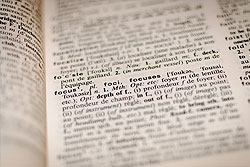Hazaragi Translator Eight Mile Plains
 Hazaragi Translator Eight Mile Plains - Brisbane Translation provides both personal and business translations by top rated Hazaragi translators for Eight Mile Plains.
Hazaragi Translator Eight Mile Plains - Brisbane Translation provides both personal and business translations by top rated Hazaragi translators for Eight Mile Plains.
Get NAATI certified Hazaragi translation services for all types of documents in Australia.
Where are NAATI-Certfied Translations Needed?
- Department of Immigration and Citizenship
- Australian Courts (including Family Courts)
- Department of Foreign Affairs and Trade (DFAT)
- Department of Transport and Main Roads (Qld)
- Medical Board of Australia
- Dental Board of Australia
- Queensland Tertiary Admissions Centre (QTAC)
- Engineers Australia
- Australian Health Practitioner Regulation Authority (Ahpra)
- Universities Admission Centre (UAC)
Common Documents Needing NAATI-Certified Hazaragi Translation
- Hazaragi Licence Translation
- Hazaragi Passport Translation
- Hazaragi Bank Statement Translation
- Hazaragi Birth Certificate Translation
- Hazaragi Marriage Certificate Translation
- Hazaragi Death Certificate Translation
- Hazaragi Degree Certificate Translation
- Hazaragi Diploma Certificate Translation
- Hazaragi Academic Transcript Translation
- Hazaragi Divorce Certificate Translation
- Hazaragi No-Criminal Record Translation
Eight Mile Plains NAATI Translation Services
Our NAATI-certified Hazaragi translators translate all types of documents for Eight Mile Plains, including personal, financial and legal documents.
Driving Licence Translation Eight Mile Plains
Birth Certificate Translation Eight Mile Plains
Degree Certificate Translation Eight Mile Plains
Marriage Certificate Translation Eight Mile Plains
The Hazaragi Language

- Hazaragi is an eastern dialect of Persian spoken by the Hazara people.
- It is predominantly used in the Hazarajat region of central Afghanistan.
- Hazaragi is also spoken by Hazara communities in Pakistan, Iran, and the global Hazara diaspora.
- The language shares many similarities with Dari, though it has distinct phonological and lexical differences.
- Hazaragi plays a crucial role in the cultural identity of the Hazara people.